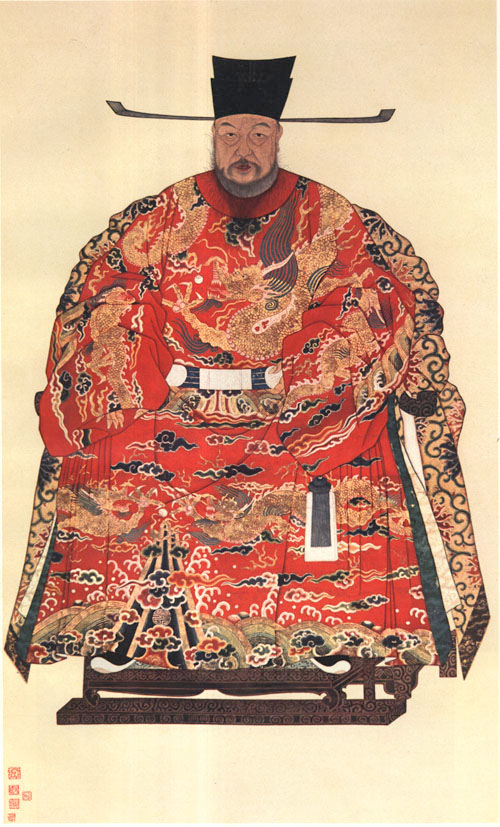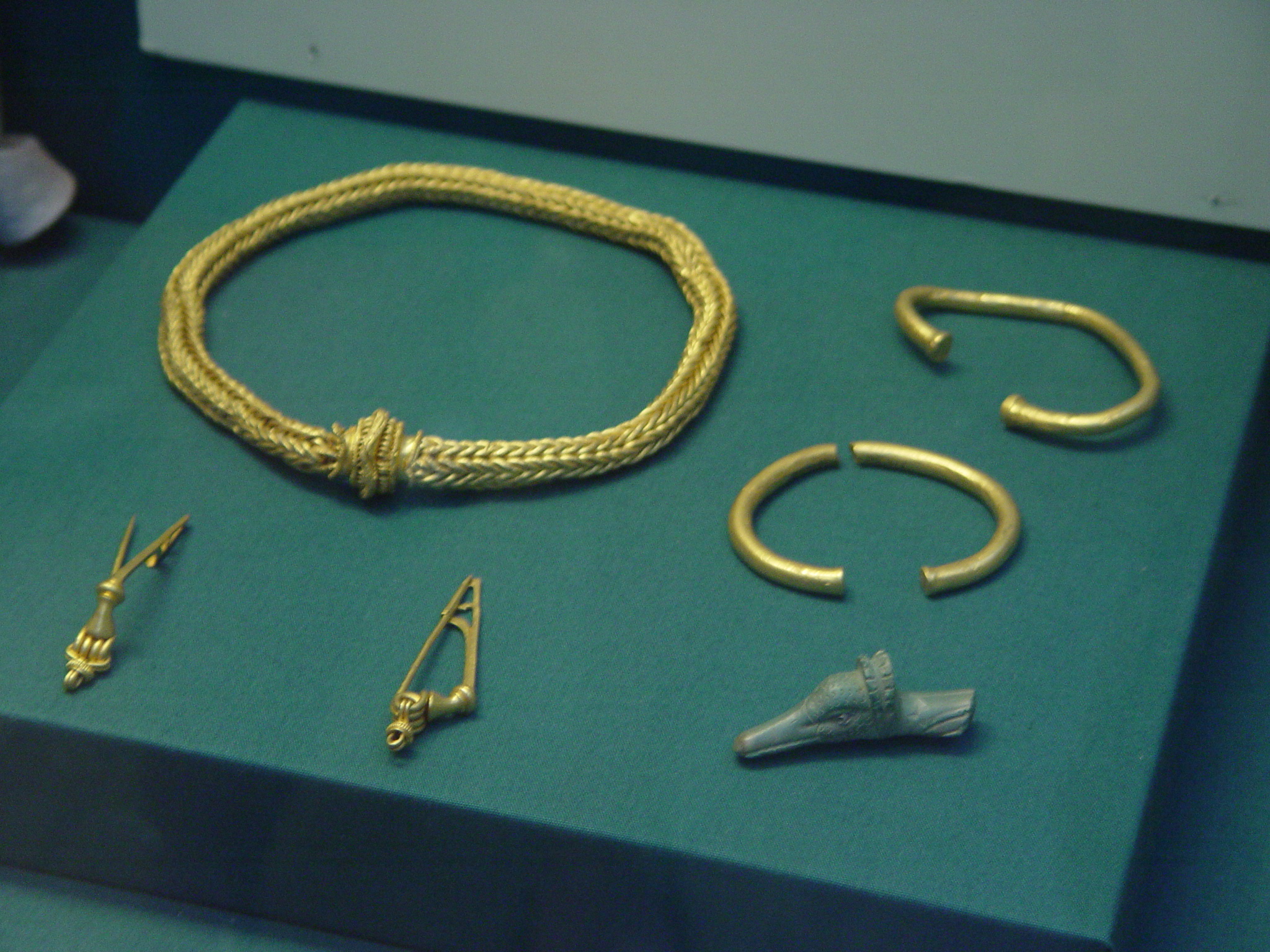|
Wang Ao (Grand Secretariat)
Wang Ao (1450 – 1524) was a politician, essayist and poet of the Ming dynasty. As a politician during the reign of the Zhengde Emperor, he held the position of Grand Secretary. Wang Ao was also an essayist who was considered a master on eight-legged essays. Life Wang Ao was born in 1450 and originated from Suzhou, born into a clerical family. He studied Confucianism and passed the imperial examination. After he passed the imperial examinations, he served at Hanlin Academy. In 1506, under the Zhengde Emperor, Wang was promoted to Grand Secretary. In 1509, Wang was recalled and retired in his native home Suzhou. Here, he wrote poetry and enjoyed great respect.Chang, Kang-i Sun. Literature of the early Ming to mid-Ming (1375–1572) In: Chang Kang-i Sun; Owen, Stephen. The Cambridge History of Chinese Literature: Volume 2. Cambridge University Press, 2010. He died on 11 March 1524 at the age of 73. Names Wang Ao held the courtesy name ''Jizhou'' and the pseudonym name of ... [...More Info...] [...Related Items...] OR: [Wikipedia] [Google] [Baidu] |
Wang (surname)
Wang () is the pinyin romanization of Chinese, romanization of the common Chinese surnames (''Wáng'') and (''Wāng''). It is currently the list of common Chinese surnames, most common surname in mainland China, as well as the most common surname in the world, with more than 107 million worldwide. [Public Security Bureau Statistics: 'Wang' Found China's #1 'Big Family', Includes 92.88m People]." 24 Apr 2007. Accessed 27 Mar 2012. Wáng () was listed as 8th on the famous Song Dynasty list of the ''Hundred Family Surnames.'' Wāng () was 104th of the ''Hundred Family Surnames''; it is currently the list of common Chinese surnames, 58th-most-common surname in mainland China. Wang is also a surname in several European countries. Romanizations is also romanized as Wong (surname), Wong in Hong Kong, ...[...More Info...] [...Related Items...] OR: [Wikipedia] [Google] [Baidu] |
Hanlin Academy
The Hanlin Academy was an academic and administrative institution of higher learning founded in the 8th century Tang China by Emperor Xuanzong in Chang'an. Membership in the academy was confined to an elite group of scholars, who performed secretarial and literary tasks for the court. One of its main duties was to decide on an interpretation of the Chinese classics. This formed the basis of the Imperial examinations, which aspiring government bureaucrats had to pass to attain higher-level government posts. Painters working for the court were also attached to the academy. Academy members Some of the more famous academicians of Hanlin were: *Li Bai (701–762) – Poet *Bai Juyi (772–846) – Poet *Yan Shu (991–1055) – Poet, calligrapher, (prime minister, 1042) * Ouyang Xiu (1007–1072) – Historian * Shen Kuo (1031–1095) – Chancellor *Zhang Zeduan (1085–1145) – Painter *Zhao Mengfu (1254–1322) – Painter, calligrapher, poet (rector, 1314–1320) * Huang Zichen ... [...More Info...] [...Related Items...] OR: [Wikipedia] [Google] [Baidu] |
Ming Dynasty Politicians
The Ming dynasty (), officially the Great Ming, was an Dynasties in Chinese history, imperial dynasty of China, ruling from 1368 to 1644 following the collapse of the Mongol Empire, Mongol-led Yuan dynasty. The Ming dynasty was the last orthodox dynasty of China ruled by the Han Chinese, Han people, the majority ethnic group in China. Although the primary capital of Beijing fell in 1644 to a rebellion led by Li Zicheng (who established the short-lived Shun dynasty), numerous rump state, rump regimes ruled by remnants of the House of Zhu, Ming imperial family—collectively called the Southern Ming—survived until 1662. The Ming dynasty's founder, the Hongwu Emperor (r. 1368–1398), attempted to create a society of self-sufficient rural communities ordered in a rigid, immobile system that would guarantee and support a permanent class of soldiers for his dynasty: the empire's standing army exceeded one million troops and the naval history of China, navy's dockyards in Nanjin ... [...More Info...] [...Related Items...] OR: [Wikipedia] [Google] [Baidu] |
1524 Deaths
Fifteen or 15 may refer to: *15 (number), the natural number following 14 and preceding 16 *one of the years 15 BC, AD 15, 1915, 2015 Music *Fifteen (band), a punk rock band Albums * ''15'' (Buckcherry album), 2005 * ''15'' (Ani Lorak album), 2007 * ''15'' (Phatfish album), 2008 * ''15'' (mixtape), a 2018 mixtape by Bhad Bhabie * ''Fifteen'' (Green River Ordinance album), 2016 * ''Fifteen'' (The Wailin' Jennys album), 2017 * ''Fifteen'', a 2012 album by Colin James Songs * "Fifteen" (song), a 2008 song by Taylor Swift *"Fifteen", a song by Harry Belafonte from the album '' Love Is a Gentle Thing'' *"15", a song by Rilo Kiley from the album ''Under the Blacklight'' *"15", a song by Marilyn Manson from the album ''The High End of Low'' *"The 15th", a 1979 song by Wire Other uses *Fifteen, Ohio, a community in the United States * ''15'' (film), a 2003 Singaporean film * ''Fifteen'' (TV series), international release name of ''Hillside'', a Canadian-American teen drama *Fi ... [...More Info...] [...Related Items...] OR: [Wikipedia] [Google] [Baidu] |
1450 Births
*
{{Number disambiguation ...
145 may refer to: * 145 (number), a natural number *AD 145, a year in the 2nd century AD * 145 BC, a year in the 2nd century BC * 145 (dinghy), a two-person intermediate sailing dinghy * 145 (South) Brigade * 145 (New Jersey bus) See also * List of highways numbered 145 The following highways are numbered 145: Australia * Lower Barrington Road, Paloona Road, Melrose Road, Bellamy Road, Forthside Road (Tasmania) * Inverleigh–Winchelsea Road (Victoria) Canada * Winnipeg Route 145 * New Brunswick Route 145 * ... [...More Info...] [...Related Items...] OR: [Wikipedia] [Google] [Baidu] |
Diplomatic Gift
A diplomatic gift is a gift given by a :diplomat, politician or leader when visiting a foreign country. Usually the gift is reciprocated by the host. The use of diplomatic gifts dates back to the ancient world and givers have competed to outdo each other in the lavishness of their gifts. Examples include silks given to the West by the Byzantines in the early Middle Ages,"Silken diplomacy" by Anna Muthesius in Shepard J. & Franklin, Simon. (Eds.) (1992) ''Byzantine Diplomacy: Papers from the Twenty-fourth Spring Symposium of Byzantine Studies, Cambridge, March 1990.'' Aldershot: Variorum, pp. 236–248. the luxury book,"The luxury book as diplomatic gift" by John Lowden in Shepard J. & Franklin, Simon. (Eds.) (1992) ''Byzantine Diplomacy: Papers from the Twenty-fourth Spring Symposium of Byzantine Studies, Cambridge, March 1990.'' Aldershot: Variorum, pp. 249–260. and panda diplomacy by the Chinese in the twentieth century. The Middle Ages In 757 Byzantine emperor Constantine ... [...More Info...] [...Related Items...] OR: [Wikipedia] [Google] [Baidu] |
You Ruo
According to Sima Qian, Confucius said: "The disciples who received my instructions, and could themselves comprehend them, were seventy-seven individuals. They were all scholars of extraordinary ability." It was traditionally believed that Confucius had three thousand students, but that only 72 mastered what he taught. The following is a list of students who have been identified as Confucius's followers. Very little is known of most of Confucius's students, but some of them are mentioned in the ''Analects of Confucius''. Many of their biographies are recorded in the Sima Qian's ''Shiji''. The Six Arts were practiced by the 72 disciples. Disciples Yan Hui (Ziyuan) Yan Hui (顏回) was a native of the Lu. His courtesy name was Ziyuan (子淵). He was Confucius's favorite student, and was younger than Confucius by 30 years. He became Confucius's disciple when he was very young. "After I got Hui," Confucius once said, "the disciples came closer to me." Confucius once traveled to Nan ... [...More Info...] [...Related Items...] OR: [Wikipedia] [Google] [Baidu] |
Shen Zhou
Shen Zhou (, 1427–1509), courtesy names Qi'nan () and Shitian (), was a Chinese painter in the Ming dynasty. He lived during the post-transition period of the Yuan conquest of the Ming. Luckily, his family worked closely with the government and they maintained their wealthy status. Shen later end his official government service. He lived a reclusive life, spending most of his time painting artworks and taking care of his widowed mother. He was a contributor to the more individualist Wu School of Chinese art. Besides painting, he was also accomplished in history and the classics. Life Shen Zhou was born into a wealthy family in Xiangcheng, near the thriving city of Suzhou, in the Jiangsu province, China. His genealogy traces his family's wealth to the late Yuan period, but only as far as Shen's paternal great-grandfather, Shen Liang-ch’en, who became a wealthy landowner following the dissolution of Mongol rule. After the collapse of the Yuan and the emergence of the new Mi ... [...More Info...] [...Related Items...] OR: [Wikipedia] [Google] [Baidu] |
Jiajing Emperor
The Jiajing Emperor (; 16September 150723January 1567) was the 12th List of emperors of the Ming dynasty, Emperor of the Ming dynasty, reigning from 1521 to 1567. Born Zhu Houcong, he was the former Zhengde Emperor's cousin. His father, Zhu Youyuan (1476–1519), Prince of Xing, was the fourth son of the Chenghua Emperor (reigned from 1464 to 1487) and the eldest son of three sons born to the emperor's concubine, Lady Shao. The Jiajing Emperor's Chinese era name, era name, "Jiajing", means "admirable tranquility". Early years Born as heir apparent of a vassal prince, Zhu Houcong was not brought up to succeed to the throne. However, the throne became vacant in 1521 after the sudden death of the Hongzhi Emperor's son, the Zhengde Emperor, who did not leave an heir. Prior to the Zhengde Emperor's death, the line of succession was as follows: * ''Chenghua Emperor, Zhu Jianshen, the Chenghua Emperor (1447–1487)'' ** ''Unnamed son (1466–1466)'' ** ''Zhu Youji (1469–1472)'' ** ... [...More Info...] [...Related Items...] OR: [Wikipedia] [Google] [Baidu] |
Imperial Examination In Chinese Mythology
The imperial examination was a civil service examination system in Imperial China designed to select the best potential candidates to serve as administrative officials, for the purpose of recruiting them for the state's bureaucracy. With the avowed purpose of testing and selecting candidates for merit, the examination system markedly influenced various aspects of society and culture in Imperial China, including Chinese mythology. The imperial civil service examinations were designed as objective measures to evaluate the educational attainment and merit of the examinees, as part of the process by which to make selections and appointments to various offices within the structure of the government of the Chinese empire, or, sometimes, during periods of Chinese national disunion, of offices within the various states. During more recent historical times, successful candidates could receive the jinshi (chin-shih), and other degrees, generally followed by assignment to specific offices, ... [...More Info...] [...Related Items...] OR: [Wikipedia] [Google] [Baidu] |
Confucianism
Confucianism, also known as Ruism or Ru classicism, is a system of thought and behavior originating in ancient China. Variously described as tradition, a philosophy, a religion, a humanistic or rationalistic religion, a way of governing, or a way of life, Confucianism developed from what was later called the Hundred Schools of Thought from the teachings of the Chinese philosopher Confucius (551–479 BCE). Confucius considered himself a transmitter of cultural values inherited from the Xia (c. 2070–1600 BCE), Shang (c. 1600–1046 BCE) and Western Zhou dynasties (c. 1046–771 BCE). Confucianism was suppressed during the Legalist and autocratic Qin dynasty (221–206 BCE), but survived. During the Han dynasty (206 BCE–220 CE), Confucian approaches edged out the "proto-Taoist" Huang–Lao as the official ideology, while the emperors mixed both with the realist techniques of Legalism. A Confucian revival began during the Tang dynasty (618–907 CE). In the late Tang, C ... [...More Info...] [...Related Items...] OR: [Wikipedia] [Google] [Baidu] |






